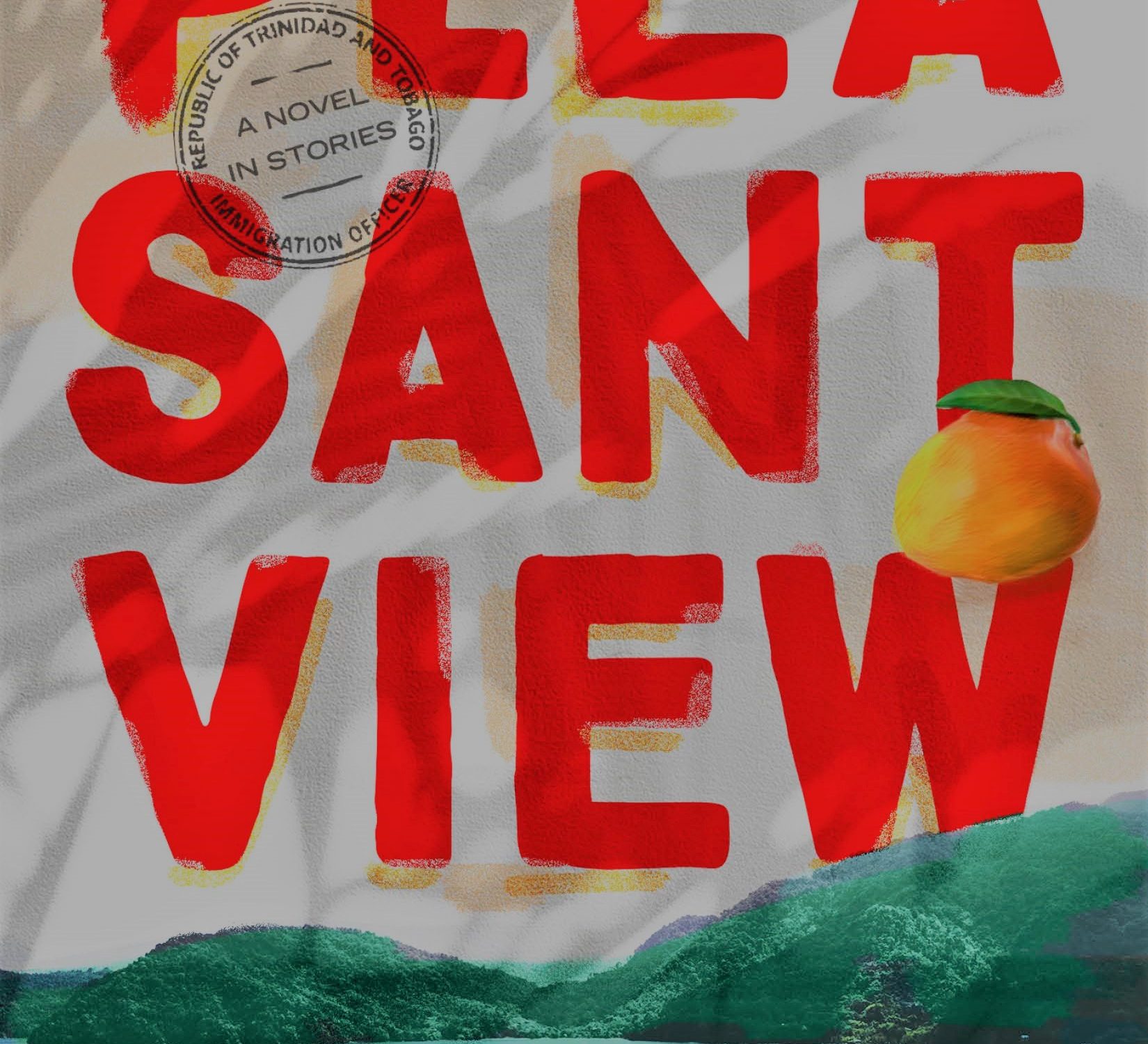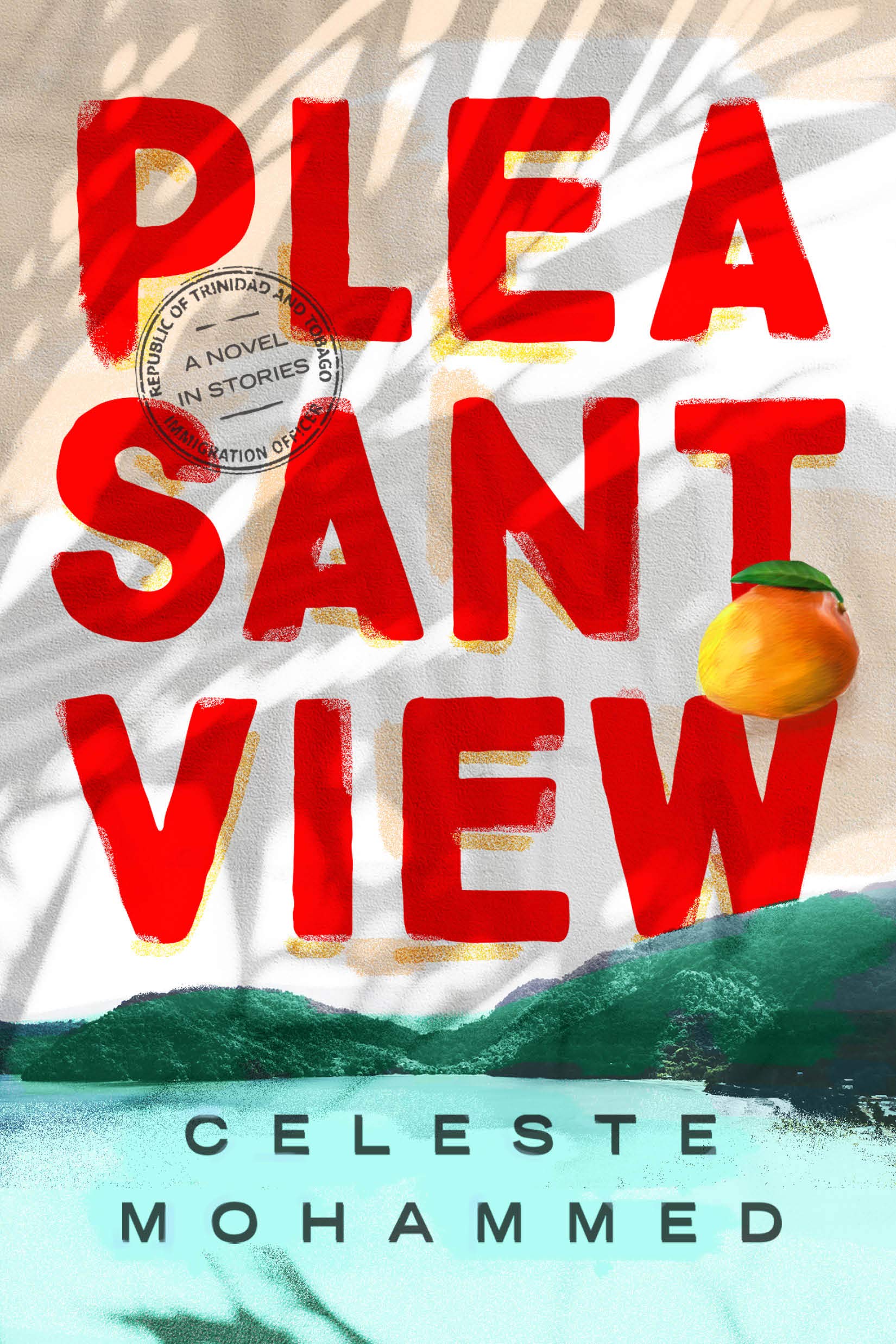Pleasantview, by Celeste Mohammed
(Ig Publishing, ISBN: 9781632462022, 208pp)
Celeste Mohammed’s novel-in-stories Pleasantview is set in a fictitious community in 21st century Trinidad. However, despite its cheerful name, the eponymous town of Pleasantview is anything but pleasant. The narrator in ‘Endangered Species’ perfectly sums it up, saying “it was so hard to tell music from noise, the good places from the bad places, the good guys from the bad guys.” Instead of only goodness, this self-contained universe teems with darkness: unrequited love, betrayal, rejection, amoral ambition, corruption, and violence.
Money talks in this community, whether it’s Jagroop’s hush up money for his shenanigans at the local “guesthouse” or the masjid’s generous allowances to young people like Jason for their “courier” services. There are also several instances of economically desperate characters “fucking for betterment” or using sex as a commodity. For example, Gail chooses to overlook certain things to become Mr. H’s outside woman in ‘White Envelope’ and her big brother, Junior (also common-law husband to Judith) elects to marry a stranger, US citizen Becky, for a green card in ‘Six Months.’
Many of the characters are trapped, literally or figuratively. Human trafficker Sunil is imprisoned on an island off the coast of Trinidad. His girlfriend Consuela is held against her will in the brothel. Omar suffocates in the hot, little room he rents from Mr. Jagroop. These oppressive micro-environments cause the characters to become desperate, scheming about how they can make a better life, but often with little success when plans come to fruition.
Mohammed also explores identity roles, particularly what it means to be a man in ‘Endangered Species.’ In this story, Omar, who is rejected by his white birth father, seeks the approval of his landlord so much that it almost causes him to allow the slaughter of animals he loves. Mohammed also explores the contradictory feelings of being in the closet in ‘Home.’ Here, Mr. H’s estranged daughter, Kimberley, grapples with her feelings for her lover Rachel. In particular, she struggles to come to terms with her sexuality mindful of her father’s unbridled homophobia: his rejection of her as his “big, fat, nasty, queer” daughter.
It should be clear from this summary alone that Mohammed is a master of narrative perspective, switching seamlessly from third person to first person at the drop of a hat. This allows the reader an intimate peek into the hidden lives of the characters of Pleasantview. I particularly liked how some stories were split into sections, each part revealing the perspective of one main character; whether it was Sunil and Consuela in ‘The Dragon’s Mouth’ or Corporal Sharpe and Miss Ivy in ‘The Ides of March.’
Mohammed is a master of narrative perspective, switching seamlessly from third person to first person at the drop of a hat.
For me, Mohammed’s writing style also brings to mind Samuel Selvon. Both authors have that uncanny ear for local dialect and their stories drip with comedy and pathos in equal measure. Whether it’s the young police officer mistaking Miss Ivy for a grizzly bear outside the police station or Miss Ivy getting hosed in the face by Jagroop in ‘The Ides of March’, there are certainly lots of laugh-out-loud moments in Pleasantview. At the same time, there are also cringe-worthy moments like the scenes in ‘Six Months’ between hopeful migrant Luther and US citizen Becky, suggesting he is willing to pay too high a price in order to advance his sons and his common-law wife back in Trinidad, the latter of whom tells him, “Do what you have to do, Luther.”
But perhaps the most emotionally satisfying scene of the collection is when Miss Ivy finally meets long-denied closure in ‘Santimanitay.’ At the neighbourhood wake for Mr. H, Miss Ivy struggles with her traumatic memories involving the deceased and finally confesses her pain in public. What I see in ‘Santimanitay’ is the strength of the community, holding one another up, quite similar to the community atmosphere of Michelle/Ruth’s church in ‘Loosed’ (though of course that strength is a double-edged sword when the community is tainted by forces that disturb the collective ability to come to a position of truth).
Like Selvon, Mohammed’s writing is quintessentially Trinidadian, particularly in her use of figurative language. One of my favourite lines comes from ‘Prologue: The Dragon’s Mouth’ where Sunil urges Consuela to jump out the window so he can catch her and they “fall in the grass, roll and separate like one big, ripe breadfruit that buss in two.”
In general, Mohammed’s debut collection feels perfectly self-contained, with its characters subject to obstacles and conflicts that keep the action going from beginning to end. The pace is generally fast, with bacchanal-soaked subplots that will keep any reader turning page after page as though experiencing a mash-up of Trini soap operas No Boundaries and Westwood Park, but with an accomplishment and sophistication that marks these stories out as their own artistic achievement. Can we get Mohammed a Netflix deal already?
In the end, however, like Miss Ivy, I felt that “what they really needed in Pleasantview was light” and was a bit disappointed by the epilogue ‘Kings of the Earth’ which suggests that things will never, ever get better in Pleasantview. I was really hoping that Jason, Junior’s son, would “get a win” and avoid trouble. But his story unfortunately follows a narrative beyond the control of Mohammed the author: a narrative of what usually happens in many communities in Trinidad. Perhaps it is this bitter reality that compels us firmly to elevate Mohammed, alongside Selvon, into the Caribbean literary firmament.
∞
∞
Suzanne Bhagan is a Trinidadian writer based in Japan. Her short fiction appears in We Mark Your Memory: Writing from the Descendants of Indenture, Moko, and Akashic Books’ ‘Duppy Thursday’ series.

